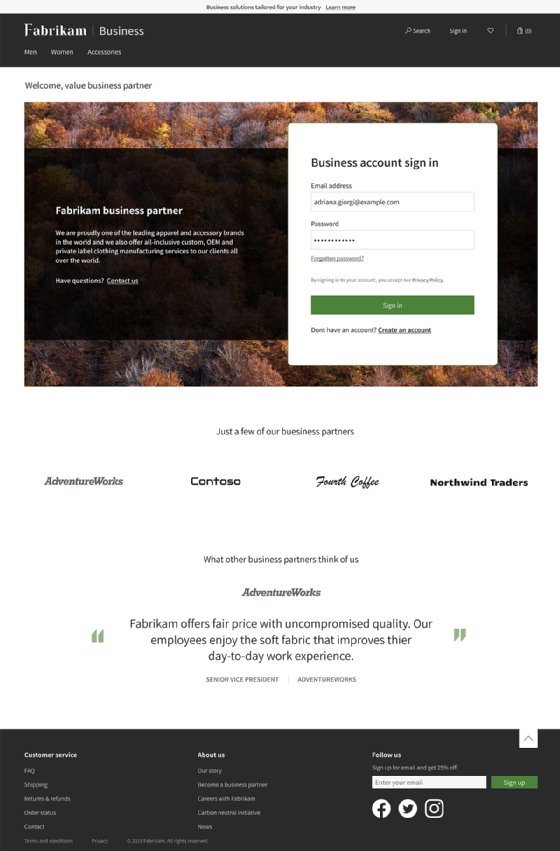
thodonal - stock.adobe.com
National Retail Federation tackles political unrest, COVID-19
Retailers at NRF discuss COVID-19 operations and how they changed retail forever. Also: the technologies that keep customer experience consistent during supply-chain disruptions.
The National Retail Federation reinforced its positions on diversity and political unrest during the trade organization's annual show this week, where retailers met virtually to strategize the path forward amid COVID-19 challenges and unrest following the U.S. Capitol riots.
During the event, retailers and e-commerce providers also moved forward on platform updates, including Microsoft, which previewed a new feature set for its e-commerce users that supports B2B sales.
The National Retail Federation's NRF 2021: Retail's Big Show -- Chapter One was the first virtual edition of the trade show traditionally held in New York. Chapter Two is an in-person event planned for June 6-8.
In his keynote, NRF board chair Mike George reflected on a tumultuous year for member retailers and their 32 million employees, who endured store closures and then quickly adapted new technologies to spin up online ordering, curbside pickup and contactless shopping. When they reopened, they dealt with health and safety issues as well as defusing tensions among customers.
To help solve those challenges, NRF added two credentials for members last October. The first, COVID-19 Retail Operations, gathers best practices to train customer-facing retail workers and distribution center workers to maintain safety during the pandemic, as well as to help retailers meet state and local requirements for COVID-19 trainings. The second, COVID-19 Customer Conflict Prevention, gives employees techniques to de-escalate incidents with customers -- and between customers -- over mask mandates and compliance.
"All of you displayed remarkable agility and remarkable resiliency through this crisis," George said. "Many of you stayed open, serving as economic first responders, while others pivoted to serve customers in new ways."

George also referenced political turmoil that struck many locales over the last year and praised NRF members for standing up for the Black community and redoubling efforts to support minority employees and diversity among their ranks. He echoed the sentiments of NRF CEO Matthew Shay, who last week called the riots at the U.S. Capitol "repugnant," and said they "fly in the face of the most basic tenets of our Constitution."
"Make no mistake about it, we have much hard work in front of us," George said. "But we will remain fully dedicated to advancing diversity, equity and inclusion throughout our industry."
AI, supply chain technologies grab spotlight
This year's NRF sessions featured a focus on technologies that might not normally grab attention, such as AI and supply chain, said IDC analyst Jordan Speer. That's because now that retailers have spun up services like contactless payment, remote ordering and curbside pickup, there's a need to fill in technology gaps to deal with problems the pandemic showed can happen -- such as how to keep shelves full during times of sporadic availability and delivery of goods.
In several sessions, there was an emphasis on technologies that automate work for retail floor workers so they can better focus on helping customers. Those included tech like digital price tags that can be changed centrally, and supply chain monitoring systems that more accurately show what's in stock at a store -- and what's on the way -- for customers ordering over apps and websites as well as for store workers stocking shelves.
"There was a lot of talk about artificial intelligence and machine learning related to a number of things like better forecasting and predicting demand to make decisions across the supply chain, even to determine which orders to ship first and where to ship from," Speer said.
Forrester analyst Brendan Witcher predicted that retailers will buy more analytics technologies to compete better, as retailers learned much about the value of data during a tumultuous year. Target used its data and its technologies to land 10 million new customers during the pandemic shutdown last spring, he pointed out, which meant that Target took them from other retailers.
"Companies that are not the Targets, the Best Buys, the Walmarts, the Amazons and the Dick's Sporting Goods of the world -- they don't have the capabilities to respond quickly, they don't have the data and insights to serve customers," Witcher said. "Their inability to understand the value of data and use it as a competitive weapon to retain their customers with marketing and messaging was something that hurt them in 2020. Now, I think they're finally starting to realize it's something they need to focus on."
Microsoft previews e-commerce for B2B
Among the companies that have responded to new demands, Microsoft previewed new e-commerce features for B2B that include an ordering interface, hooks into CRM systems to tap sales histories and features made popular by Amazon, such as product recommendations and reviews.
While the new features aren't necessarily groundbreaking, they do help catch the Dynamics application stack to the competition, Witcher said.

"This is nothing new -- SAP Hybris, Oracle, all of these companies have been serving both B2B and B2C companies for a long time," Witcher said. "It's a natural progression for a commerce company that plays in the B2C space."
B2B e-commerce used to be more of an internal process of order-taking, Speer said. Now it's evolved into a customer-facing process, and e-commerce platforms provide the interface to enable it.
The Microsoft e-commerce features for B2B are in public preview for now. Pricing information is not yet available. While Francois Van Splunder, senior product marketing manager for Dynamics 365, couldn't give specifics on when they'd be generally available, he said that based on past product cycles, it will likely be soon.
Enabling B2B e-commerce became a higher priority during the pandemic, when businesses were cut off from the usual in-person contact. More than that, though, Van Splunder said, the millennial generation -- now in charge of much B2B buying -- wants self-service tools and a familiar online buying experience they get from consumer sites.
Microsoft uses its own technologies to sell merchandise like Xboxes and Surface computers and tablets, and that has aided in its product development process. When the B2C Microsoft e-commerce platform debuted a year and a half ago, customers quickly asked for a B2B equivalent for businesses that distribute goods and furnish supplies to other businesses, Van Splunder said. Then came the pandemic, which disrupted traditional order taking, management and fulfillment processes.
"We already knew there was on overwhelming need for it, and I do think COVID-19 highlighted that need," Van Splunder said. "We wanted to bring it to market as soon as possible."





